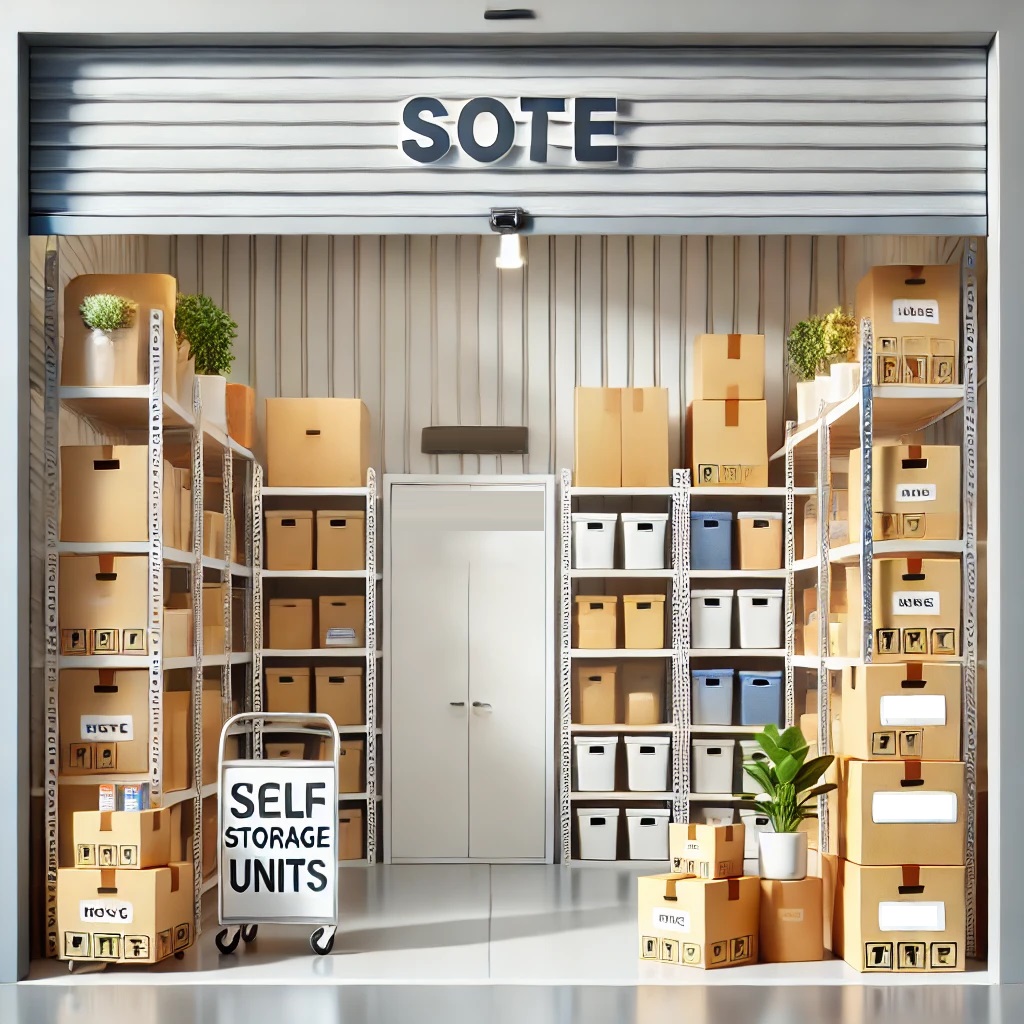When looking for self storage in Worthing, selecting the right facility is crucial. From security features to location and unit size, there are numerous factors to consider to ensure your belongings are safe, accessible, and stored in optimal conditions. Here, we offer key insights to guide you in making the best choice.
1. Location and Accessibility
One of the most important factors in choosing a storage facility is location. The facility should ideally be close to your home or business to save you time and transportation costs when accessing your items.
- Proximity to Your Needs: If you anticipate frequent visits, a nearby facility will be more convenient. This is particularly useful if you’re storing business supplies or seasonal items.
- Accessible Hours: Check the facility’s hours of operation. Some offer 24/7 access, while others have set hours. For some users, round-the-clock access may be essential.
With our Worthing storage options, you can find a location that balances convenience with comprehensive storage features.
2. Security Features to Look For
Security is a top priority when storing valuables. A reliable self-storage facility should have multiple security measures in place to deter theft and keep your belongings secure.
- CCTV Surveillance: A good facility will have surveillance cameras monitoring the premises 24/7. Make sure the cameras cover key areas, including entry points and unit corridors.
- Access Control Systems: Facilities with keycode entry or electronic gates help ensure that only authorised individuals have access.
- On-Site Staff: A facility with on-site personnel adds an extra layer of security. Staff can help deter suspicious activity and respond to emergencies more effectively.
When choosing a facility for self storage in Worthing, prioritise security features to ensure peace of mind.
3. Unit Size Options
Self-storage facilities typically offer a variety of unit sizes, making it easier to find a space that meets your specific needs.
- Estimate Your Space Requirements: Assess the amount of space you’ll need based on the items you plan to store. Storage units can range from small lockers to large rooms that accommodate the contents of a house.
- Room for Growth: Consider opting for a slightly larger unit if you anticipate needing to store more items in the future. Choosing a unit that’s too small may lead to cramped conditions or the need to rent additional space.
Most facilities provide size guides, and you can consult staff for guidance on selecting a suitable unit for your needs.
4. Climate Control and Environmental Conditions
For those storing temperature-sensitive items such as electronics, documents, or antiques, climate control can be a valuable feature.
- Temperature and Humidity Control: Climate-controlled units protect items from extreme temperature fluctuations and moisture, which can cause damage over time.
- Ventilation: Proper ventilation helps prevent mould and mildew, making climate control essential for certain items.
Climate-controlled options may be more expensive but are well worth it if your stored items are susceptible to damage from environmental conditions.
5. Insurance and Protection Options
Insurance is often required or highly recommended when renting a self-storage unit. Many facilities offer insurance plans or work with third-party providers.
- On-Site Insurance Options: Some facilities provide in-house insurance, which can be convenient and tailored to self-storage needs.
- Third-Party Insurance: If the facility does not offer insurance, you can often find suitable coverage through your homeowner’s or renter’s insurance.
Be sure to confirm that your items are protected against risks such as fire, theft, and water damage, especially for long-term storage.
6. Cleanliness and Maintenance
A clean, well-maintained facility is essential for preserving your items. Facilities that prioritise cleanliness and regular upkeep create a better storage experience.
- Regular Pest Control: Look for a facility that actively maintains pest control. Pests can damage stored items, especially if food or organic materials are stored.
- Well-Lit and Clean Corridors: Well-lit corridors and clean hallways contribute to a safe and pleasant environment, making it easier to access and organise items.
Inspecting a facility beforehand can give you a clear sense of its cleanliness and overall condition.
7. Customer Service and Support
Good customer service can make a significant difference in your storage experience. Staff should be knowledgeable, friendly, and available to answer any questions.
- Helpful Staff: Attentive staff can help with unit selection, offer moving tips, and assist with access or payment queries.
- Responsive to Issues: Look for a facility that handles issues promptly, whether it’s a maintenance request or assistance during emergencies.
Facilities with positive reviews often reflect high-quality customer service, so it’s worthwhile to read testimonials before committing.
8. Flexibility in Rental Terms
Storage needs can change, so it’s beneficial to find a facility with flexible rental terms. Short-term and long-term rentals should both be options, depending on your requirements.
- Monthly Rentals: Many facilities offer month-to-month rentals, allowing you to adjust as needed without a long-term commitment.
- Discounts for Long-Term Leases: If you’re planning on storing items for an extended period, ask about discounts for longer leases.
Choosing a facility that accommodates changing needs gives you greater control over your storage plans.
9. Pricing and Value for Money
Pricing is an essential factor, but it’s also important to consider the value you’re getting for the cost.
- Transparent Pricing: Look for facilities with clear pricing structures and no hidden fees. Many reputable providers post their prices online or offer upfront quotes.
- Discounts and Promotions: Some facilities may offer discounts for new customers or special promotions. Ask about any available deals to make the most of your investment.
While cost is important, remember that cheaper facilities may lack essential features. Always balance price with quality and security.
10. Reviews and Reputation
Finally, online reviews and word-of-mouth recommendations are valuable resources when selecting a self-storage facility.
- Check Customer Reviews: Google and other review sites can provide insight into the experiences of past customers. Look for consistent themes in feedback, especially related to security and customer service.
- Ask for Recommendations: If you know people who have used self-storage in Worthing, ask for recommendations or feedback. Personal experiences can provide trustworthy information.
Reputable facilities often have strong online reviews, which can give you confidence in your decision.
Selecting the right self storage in Worthing involves careful consideration of location, security, and the facility’s amenities. By keeping these tips in mind, you can find a storage solution that meets your needs and offers peace of mind. If you’re ready to find reliable storage in Worthing, visit our Standby Self Storage in Worthing page to explore the features and benefits we offer.

